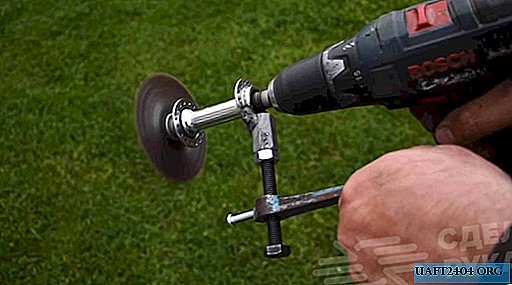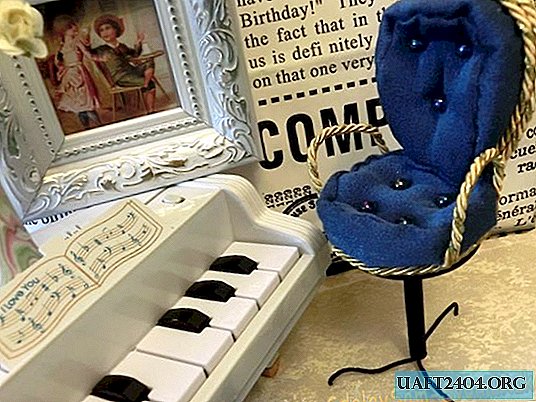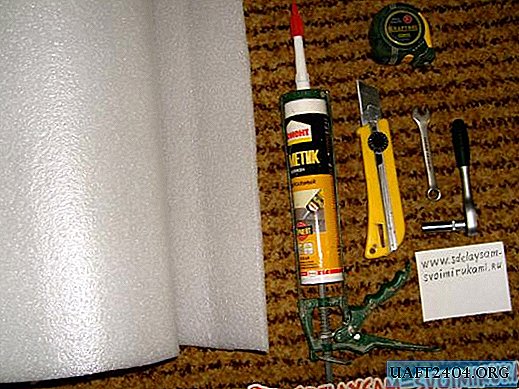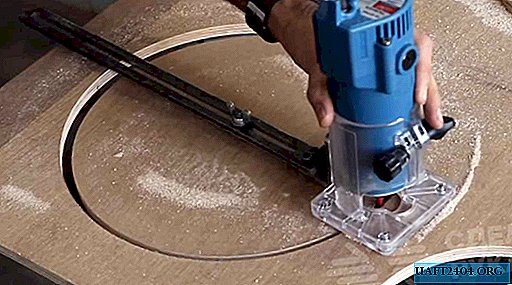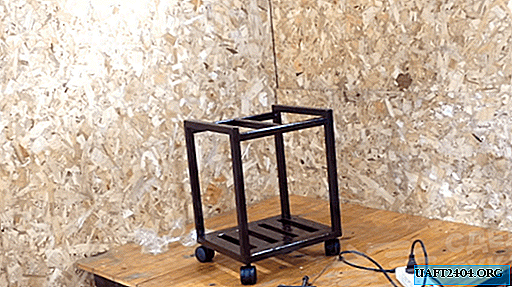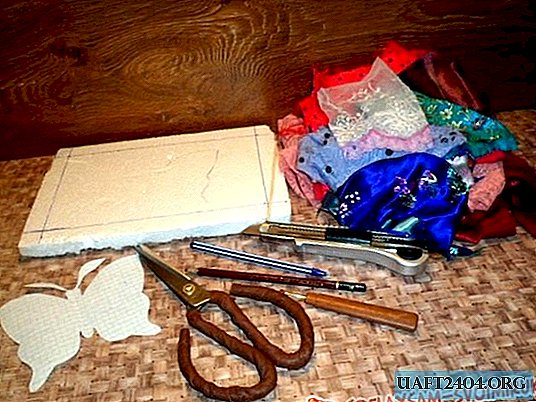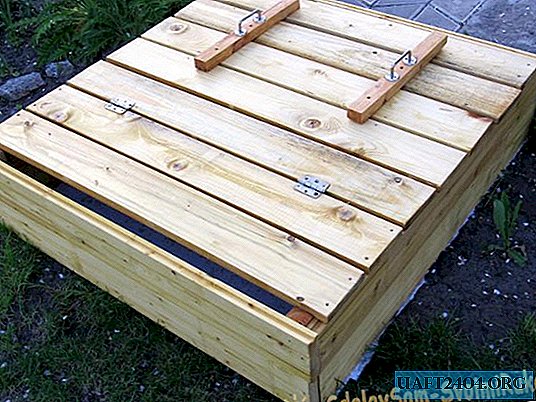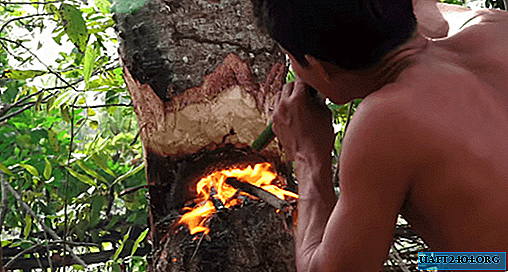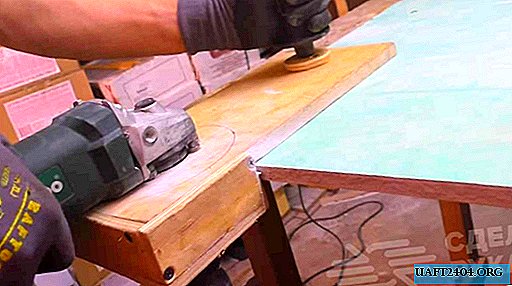Share
Pin
Tweet
Send
Share
Send
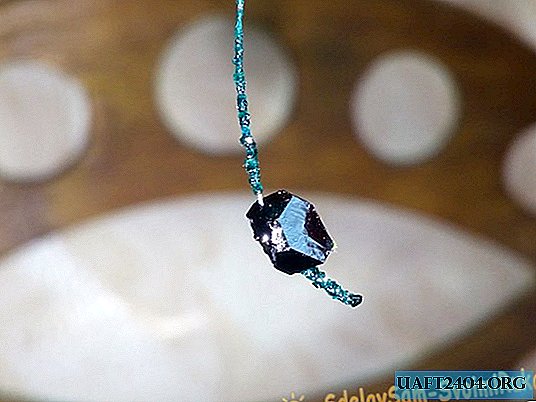

But first, let's get copper acetate itself (and our crystals will grow in the resulting solution).
Will need
So, we need:
- Copper sulfate is a fertilizer sold in stores for summer cottage;
- Baking soda and vinegar 9% - can be found in the grocery store;
- Distilled water - in a hardware store.

We will also need disposable tableware: cups, spoons, and several filters: coffee or, preferably, chemical.
Obtaining crystals from copper acetate
First, prepare a solution of copper sulfate. Pour at the bottom of a glass of vitriol:

And fill with distilled water in half. Stir until the substance is completely dissolved.

Now in small portions (slides on the edge of the spoon) add soda. Immediately after the addition, you should cover the glass with a napkin, because as a result of the reaction, bubbles of carbon dioxide are released, which carry particles of the solution. The reaction equation is presented below.

And this is how the solution hissed:

When carbon dioxide ceases to be released, stop adding soda and let the solution settle for a short time. As a result, a transparent solution layer forms from above:

Then pour the liquid into another cup (we do not need it) and wash the precipitate of the main copper carbonate. To do this, add a little distilled water to it, mix, let it stand and drain the liquid. This procedure must be repeated two to three times.
Then again we add distilled water to the substance and pass the solution through the filter: we need to collect the precipitate.
Once we have filtered the precipitate, it must be washed a couple of times on the filter. To do this, add water there and mix slightly.

After that, directly with the filter, put the precipitate on a napkin so that it dries out a little.

When the precipitate dries, transfer it to a new cup. Next, we need vinegar. It is added to the solution in small portions until the entire precipitate is dissolved.
Reaction equation:

The solution turns dark blue.

The precipitate, like copper acetate, has a rather low solubility, because of this it does not dissolve very much when vinegar is added. When the precipitate is dissolved, filter the solution.
The filtered solution has a beautiful dark blue color.

We leave the resulting solution for a week. During this time, small crystals will begin to form in it.

After a week, pour the solution into another cup, pour the crystals at the bottom onto a napkin.

We choose the one that we like the most and attach it to the fishing line. Dip into the solution to grow. Now it remains only to wait. Each week, the solution should be poured into a new glass so that the crystalline grows at maximum speed.

During growth, the fishing line is also overgrown with crystals, which should be disposed of. Only this must be done with great care so as not to damage the main crystal.
On this my article came to an end. Good luck to everyone in the repetition!
Share
Pin
Tweet
Send
Share
Send

